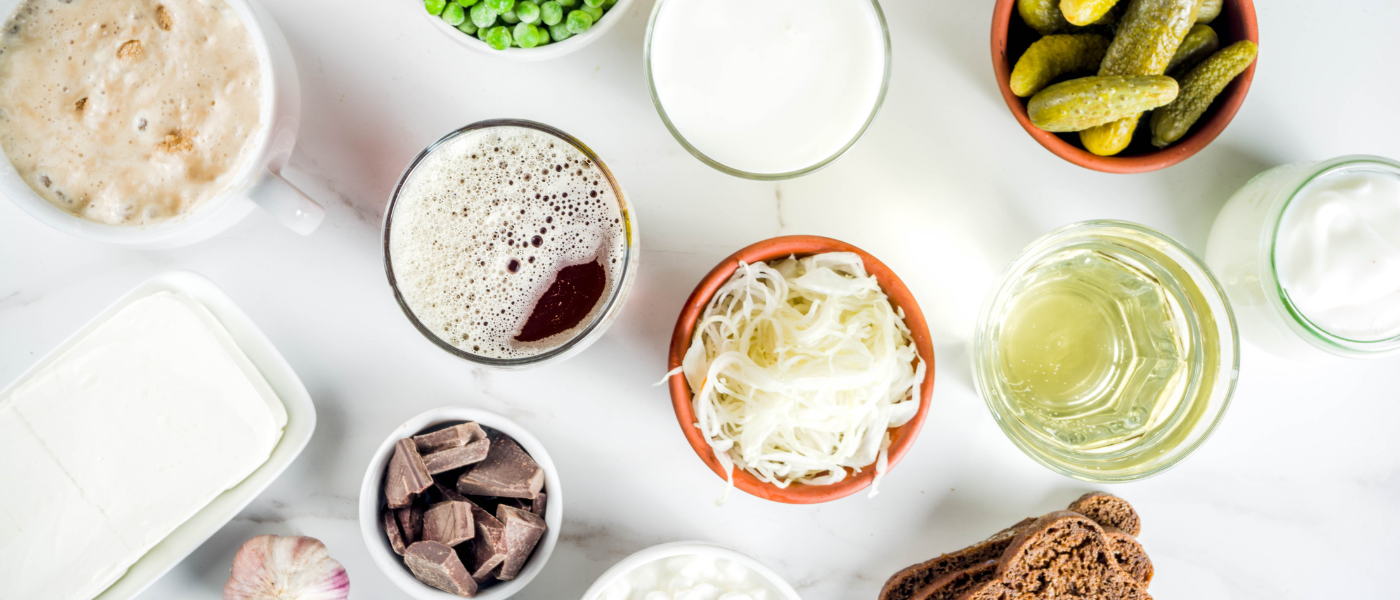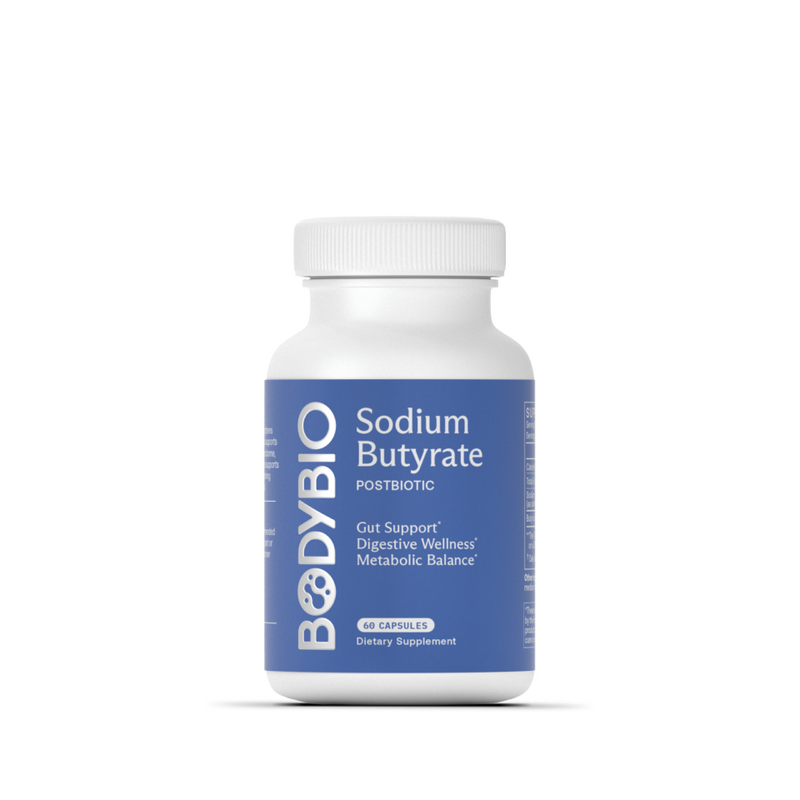Best Probiotic Foods to Ease Digestive Distress and Support Immune System Wellness
Key Takeaways:
Key Points:
- The best way to consume probiotics is through fermented foods.
- When considering probiotics for your health, remember that the diversity of bacterial species is an important factor.
- A quick visit to your local grocery store will reveal tons of healthy fermented foods available to feed your gut. Try natural probiotic foods like yogurt, sauerkraut, and even sourdough bread. (Yep, you read that right!)
- Fibrous foods aren’t technically probiotics, but many can be a great source of prebiotics.
- Probiotics have been found to reduce cellular aging.
- When supplementing “biotics,” it’s often more beneficial to try prebiotics and postbiotics for long-term gut health.
If you’ve spent any time in the holistic health world, you know that probiotics are considered a miracle supplement. They can help with weight loss, gut imbalances, food sensitivities, and even boost your immune system.
But is all of that really true? The answer is… sort of.
Probiotics are just one element in the complex system that is your microbiome. They work alongside prebiotics and postbiotics to regulate your digestive tract and keep your immune system in check.
Supplements are one option to get your daily dose of probiotics, but the best way is through natural probiotic foods (aka, fermented foods!)
How to Get More Probiotics
Although probiotic supplements can be effective for some, the best way to get more probiotics is through your diet. A quick visit to your grocery store will reveal dozens of tasty fermented foods rich in probiotics that will benefit your health.
Probiotic supplements are famous for their ability to regulate bloating, reverse weight gain, and boost the immune system. But the truth is, there’s little quality control for probiotic supplements. The species in your daily dose may be dead — and they also might not contain the exact bacteria your body needs.
To take the guesswork out of probiotic supplementation, we recommend a diverse diet of fibrous and fermented foods. The diversity in the foods you eat will help to regulate the various types of bacterial species you’re exposed to. Plus, fermented foods ensure that the probiotics you consume are active, living cultures.
As you begin to introduce these foods rich in probiotics into your diet, go slowly. Your body may need time to adjust, especially if you have any existing digestive issues. Start with a few weekly servings of kimchi or yogurt and work your way up to daily.
Foods Rich in Probiotics
The human body has been exposed to probiotics for thousands of years. Before refrigeration and drying methods, fermentation was one of the best ways to preserve food.
Our ancestors consumed mass amounts of probiotics — which may be one of the reasons we respond so well to them today. These are just a few foods that contain healthy strands of bacteria to boost our gut microbiome.
-
Sauerkraut/Gut Shots
If you’re not used to eating fermented foods, sauerkraut (fermented cabbage) may taste a bit foreign at first. Some like to include this fermented food as a topping for their scrambled eggs or guacamole. It’s also a great addition to salads.
If sauerkraut isn’t your thing, kimchi is a Korean variety of fermented cabbage, combined with spices and sometimes other veggies. Kimchi is typically served as a side dish with most Korean meals.
We also love Gut Shots - the only wellness shot powered by fermented organic vegetables that’s cold-brewed and filtered to retain naturally probiotic benefits. It’s an easy way to get a daily dose of digestive strength and immunity from the gut.
-
Yogurt
Since yogurt is a more popular modern-day food, it is often the go-to recommendation for increasing your probiotic intake. But you must use caution — not all yogurt is created equal.
When searching for a probiotic-friendly yogurt at the grocery store, make sure you check the ingredients label for “live and active” cultures of healthy bacteria. You may see strains like Lactobacillus bulgaricus and Streptococcus thermophilus.
Some companies market their yogurt brands as gut-friendly, but the bacteria cultures are either missing or dead once they reach the store shelves. That’s why “live and active” is so essential.
We recommend choosing a brand that’s low on sugar and high on fat content—minimally processed for best digestion and overall health. Top with berries and homemade granola for an extra dose of fiber.
-
Kombucha
One of the best probiotic drinks on the market is kombucha. This is a bubbly drink made from a “SCOBY” (symbiotic culture of bacteria and yeast). It’s a form of fermented tea that can be flavored with various fruits and herbs. It’s basically a healthy soda.
Although sugar is required for the fermentation process, we recommend you find a kombucha brand without added sugars. That way, you can absorb the most benefits from your bubbly drink.
-
Fibrous Foods (Berries, greens, potatoes, garlic, oats)
Okay, you got us. Fibrous foods like berries, greens, potatoes, garlic, and oats aren’t considered probiotics. They’re not fermented, and they don’t include the rich bacterial strands that other foods like kombucha and yogurt do.
But fibrous foods are responsible for something very important: feeding your gut microbiome.
If you’re increasing your probiotic intake, those probiotics need something to eat. Without enough food for your gut flora, the new probiotics will die.
Enter: prebiotics! Prebiotics feed the healthy bacteria (probiotics) in your gut so these cultures can strengthen and grow. Think of probiotics and fiber as a tag team — they need each other in order to balance and optimize your gut ecosystem. If you’re going to increase the amount of probiotics that enter your system, you should make sure they have a sustainable diet, too.
-
Sourdough Bread
Bread… a probiotic? Really? Yep, dreams do come true.
Sourdough bread is created through the process of fermentation — so it does contain some natural probiotics. Since it is baked and some of the natural probiotics are killed in the process, it isn’t considered as powerful a probiotic source as other foods like kimchi or yogurt. But for those who enjoy sandwiches and toast, it can be an easy and inexpensive way to boost your gut microbiome.
Just make sure to buy your sourdough fresh from your local bakery or make it yourself at home — store-bought sourdough breads will have a mountain of preservatives that make the health benefits negligible.
Another awesome thing about sourdough bread is that the fermentation process eliminates some of the gluten content—making it easier for sensitive stomachs to digest.
Sharma, R., & Padwad, Y. (2020). Probiotic bacteria as modulators of cellular senescence: emerging concepts and opportunities. Gut microbes, 11(3), 335–349. https://doi.org/10.1080/19490976.2019.1697148
Landete, J. M., Gaya, P., Rodríguez, E., Langa, S., Peirotén, Á., Medina, M., & Arqués, J. L. (2017). Probiotic Bacteria for Healthier Aging: Immunomodulation and Metabolism of Phytoestrogens. BioMed research international, 2017, 5939818. https://doi.org/10.1155/2017/5939818
Slavin J. (2013). Fiber and prebiotics: mechanisms and health benefits. Nutrients, 5(4), 1417–1435. https://doi.org/10.3390/nu5041417
Wang, Y., Jiang, Y., Deng, Y., Yi, C., Wang, Y., Ding, M., Liu, J., Jin, X., Shen, L., He, Y., Wu, X., Chen, X., Sun, C., Zheng, M., Zhang, R., Ye, H., An, H., & Wong, A. (2020). Probiotic Supplements: Hope or Hype?. Frontiers in microbiology, 11, 160. https://doi.org/10.3389/fmicb.2020.00160
Homayoni Rad, A., Vaghef Mehrabany, E., Alipoor, B., & Vaghef Mehrabany, L. (2016). The Comparison of Food and Supplement as Probiotic Delivery Vehicles. Critical reviews in food science and nutrition, 56(6), 896–909. https://doi.org/10.1080/10408398.2012.733894




